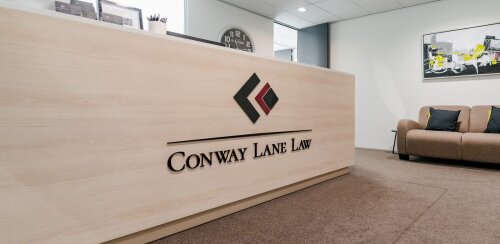Best Job Discrimination Lawyers in Rangiora
Share your needs with us, get contacted by law firms.
Free. Takes 2 min.
List of the best lawyers in Rangiora, New Zealand
1. About Job Discrimination Law in Rangiora, New Zealand
In Rangiora, as in the rest of New Zealand, job discrimination is governed by national law. There is no separate Rangiora-specific statute; the key protections come from national Acts and guidance. The main framework prohibits unfair treatment in hiring, terms of employment, promotions, pay, and dismissal based on protected characteristics.
The core protections are found in the Human Rights Act 1993, which makes direct and indirect discrimination unlawful in employment. The law extends to recruitment processes, performance management, and harassment in the workplace. Local employers in Rangiora, from farms to retail and service sectors, must comply just as organizations in Christchurch and other Canterbury towns do. If you believe discrimination has occurred, you can seek resolution through the Human Rights Commission or pursue a remedy through the courts or the Employment Authority depending on the situation.
The right approach is to understand both your rights and the practical pathways for enforcing them. A solicitor or legal counsel with experience in employment and discrimination matters can help you evaluate options and build a solid plan tailored to Rangiora's local employers and industries.
Discrimination in employment is unlawful under the Human Rights Act 1993 and covers direct and indirect treatment in hiring and employment decisions.
Source: New Zealand Human Rights Commission
For the legal framework and exact phrasing of the laws, you can explore legislation and official guidance at Legislation NZ and Employment New Zealand.
2. Why You May Need a Lawyer
- Direct discrimination in recruitment in a Rangiora business. A local hospitality employer told you they would hire only people who live within a 10-kilometer radius, effectively excluding you based on your residential address in Rangiora. A lawyer can assess whether this is a prohibited ground and guide next steps.
- Discrimination tied to disability and requested accommodations. You asked for reasonable adjustments at a Rangiora warehouse, but the employer refused or imposed a punitive response. A solicitor can determine if the refusal breaches duties under the Human Rights Act and advise on remedies.
- Unequal pay for the same role and responsibilities. In a Rangiora retail store, you discovered you earn less than a colleague for the same job due to gender or ethnicity. A legal adviser can help quantify the claim and pursue appropriate enforcement options.
- Harassment or hostile work environment based on protected characteristics. Repeated derogatory comments about your religion or ethnicity from a supervisor in Rangiora create a toxic workplace. A lawyer can help you document the pattern and pursue relief or a formal complaint.
- Retaliation after raising safety concerns. After you reported an unsafe practice in a Canterbury farming operation near Rangiora, you faced adverse changes to your duties or schedule. A solicitor can assess if retaliation crosses legal boundaries and assist with a complaint or settlement.
3. Local Laws Overview
- Human Rights Act 1993 - Prohibits discrimination in employment on protected grounds such as sex, race, disability, age, sexual orientation, religion, and more. It also covers harassment and requests for accommodation. Administrative and enforcement mechanisms include the New Zealand Human Rights Commission, with pathways to conciliation and, if needed, court action.
- Employment Relations Act 2000 - Establishes the framework for good faith employment relations, negotiation, and dispute resolution. It interacts with discrimination protections by governing how terminations, disciplinary actions, and changes to conditions are carried out.
- New Zealand Bill of Rights Act 1990 - Protects fundamental rights and freedoms, including protection against discrimination in certain contexts. It guides interpretation of other statutes and supports individuals seeking fair treatment in the workplace.
The exact commencement dates and amendments for these statutes vary by section. For precise dates and current text, see official sources below. Recent enforcement trends show growing emphasis on preventing harassment and addressing discrimination in both in-person and remote work environments.
The Human Rights Act 1993 continues to guide workplace discrimination protections, with ongoing guidance from the Human Rights Commission on harassment and equality in employment.
Source: New Zealand Human Rights Commission • Employment New Zealand • Legislation NZ
4. Frequently Asked Questions
What counts as job discrimination in New Zealand?
Discrimination occurs when an employer treats a job applicant or employee unfavorably because of protected characteristics such as race, sex, age, disability, or religion. It also includes harassment linked to those characteristics.
How do I start a complaint about workplace discrimination in Rangiora?
Contact the New Zealand Human Rights Commission to discuss options for conciliation. A lawyer can help you prepare documents and represent you if the matter proceeds to mediation or court.
What is the role of a solicitor in discrimination cases?
A solicitor assesses grounds for discrimination, advises on evidence, negotiates settlements, and represents you in mediation or court processes if needed.
Can I get free or low-cost initial advice in Rangiora?
Some community law services offer initial guidance, and local law firms may provide a free first consultation. The Human Rights Commission can also provide information about options.
How much does it cost to hire a lawyer for discrimination issues?
Costs vary by complexity and firm. Some lawyers offer fixed-fee assessments for initial advice, while others bill hourly. Ask for an upfront written estimate.
How long does a discrimination case take in New Zealand?
How long depends on factors like the case complexity and whether it settles. A typical mediation may occur within a few months; court proceedings can extend to 6-18 months or longer.
Do I need to prove intent to discriminate?
No. The law often focuses on the effect of the action and whether it disproportionately impacts a protected group, not necessarily the intent behind it.
Do I need to file with the Human Rights Commission before going to court?
Not always, but starting with a complaint to the Commission can lead to early conciliation and potentially avoid court. A solicitor can advise on strategy.
What is the difference between direct and indirect discrimination?
Direct discrimination is a clear, intentional disadvantage. Indirect discrimination arises from a neutral rule that disproportionately disadvantages a protected group.
Can discrimination complaints be resolved without going to court?
Yes. Most discrimination issues can be resolved via mediation or conciliation through the Human Rights Commission or via employer-led settlements.
What evidence helps prove discrimination?
Documentation of communications, job advertisements, performance reviews, witness statements, pay records, and any pattern of adverse actions related to protected grounds can help.
Is there a time limit to file a discrimination complaint?
Time limits vary by process. Generally, you should act promptly; early advice from a solicitor is recommended to preserve options and deadlines.
5. Additional Resources
- New Zealand Human Rights Commission - Official body to investigate and resolve discrimination complaints, provide information, and guide options. https://hrc.co.nz/
- Employment New Zealand - Government guidance on workplace rights, separation and dismissal, and fair employment practices. https://www.employment.govt.nz/
- Legislation New Zealand - Official database of statutes including the Human Rights Act 1993 and the Employment Relations Act 2000. https://legislation.govt.nz/
6. Next Steps
- Document the incident gather dates, locations, people involved, and any written communications or emails related to the discrimination.
- Check deadlines and options verify potential time limits for complaints and the availability of conciliation through the Human Rights Commission. Seek initial guidance quickly.
- Consult a Rangiora solicitor specializing in employment discrimination to evaluate grounds, evidence, and strategy. Ask for an engagement plan and cost outline.
- Consider a confidential initial meeting with the solicitor to discuss the options of notification to the employer, mediation, and potential court proceedings.
- Contact the Human Rights Commission for guidance on conciliation and to understand your rights and options before formal mining steps.
- Decide on a path whether to pursue mediation, a formal complaint, or a court claim based on advice and likelihood of success.
- Engage in evidence collection and witness interviews to prepare for mediation or a potential hearing, under the guidance of your solicitor.
Lawzana helps you find the best lawyers and law firms in Rangiora through a curated and pre-screened list of qualified legal professionals. Our platform offers rankings and detailed profiles of attorneys and law firms, allowing you to compare based on practice areas, including Job Discrimination, experience, and client feedback.
Each profile includes a description of the firm's areas of practice, client reviews, team members and partners, year of establishment, spoken languages, office locations, contact information, social media presence, and any published articles or resources. Most firms on our platform speak English and are experienced in both local and international legal matters.
Get a quote from top-rated law firms in Rangiora, New Zealand — quickly, securely, and without unnecessary hassle.
Disclaimer:
The information provided on this page is for general informational purposes only and does not constitute legal advice. While we strive to ensure the accuracy and relevance of the content, legal information may change over time, and interpretations of the law can vary. You should always consult with a qualified legal professional for advice specific to your situation.
We disclaim all liability for actions taken or not taken based on the content of this page. If you believe any information is incorrect or outdated, please contact us, and we will review and update it where appropriate.









